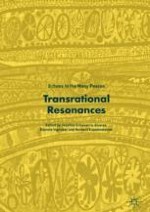2018 | OriginalPaper | Buchkapitel
15. Iustitia’s Healing. On the Potential of Synergies Between Law and Elicitive Conflict Transformation
verfasst von : Florencia Benitez-Schaefer
Erschienen in: Transrational Resonances
Aktivieren Sie unsere intelligente Suche, um passende Fachinhalte oder Patente zu finden.
Wählen Sie Textabschnitte aus um mit Künstlicher Intelligenz passenden Patente zu finden. powered by
Markieren Sie Textabschnitte, um KI-gestützt weitere passende Inhalte zu finden. powered by
